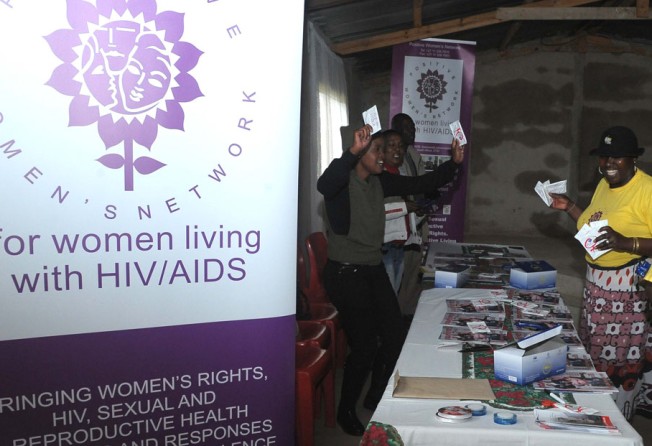United Nations warns China of need to tackle HIV risks for women

China could follow the dangerous path of several African countries where more women than men fall prey to the Aids epidemic if the country fails to enact powerful measures to tackle the problem, particularly among vulnerable groups, women's rights advocates warn.
HIV/Aids spreads rapidly among at-risk women on the mainland, says Guo Ruixiang, a programme co-ordinator for UN Women, the United Nations body for gender equality and women's empowerment.
But while China's most susceptible women have been overlooked, the nation has taken steps to prevent HIV at birth.
The number of reported cases of HIV/Aids on the mainland jumped by 93 per cent in four years - from 48,161 in 2007 to 92,940 in 2011, according to a report by the Joint United Nations Programme on HIV/Aids.
Many women's advocates were stunned by the numbers involving women. Estimates of females with the virus shot up 12 per cent - from 200,900 in 2007 to 225,700 in 2009.
The findings were included in UN reports, offering researchers valuable statistics for an overdue insight into the spread of HIV/Aids on the mainland. The government did not make any figures available before 2005.
Now that the disease has become a public health issue in China, it requires greater collaboration between government agencies and non-government organisations, Guo says.
"It's also a social issue revolving around gender," she said. "If we don't tackle it from the perspective of gender equality, women will be at an even greater disadvantage."
At the end of 2011, an estimated 780,000 mainlanders were living with HIV - 48,000 newly infected that year - and 154,000 had had Aids. That year 28,000 people died of Aids.
The National Commission of Family Planning and Health has yet to update its figures. The commission says that sexual transmissions account for nearly 90 per cent of new infections.
Guo says the ratio of women to men living with HIV/Aids in Yunnan jumped from 15.5 per cent in 2000 to 40.3 per cent in 2009.
She added that a quarter of women living with the virus receive it from their husbands and long-term partners. Some of the men had been drug addicts, had paid for sex, or had engaged in sex with other men.
Another key finding in a UN report last year on spousal transmission of HIV/Aids in five provinces including Yunnan, Henan and Sichuan is that nearly 32 per cent of women married to a man with HIV/Aids had been forced to have unprotected sex with her spouse. Some women's advocates fear that China's male-dominant culture permits men to have greater control over their partners in sexual relations and turns a blind eye to those with multiple partners, all part of a perception of masculinity.
"Other women, such as prostitutes and female drug addicts are more vulnerable to HIV/Aids because they're at a disadvantage economically. That undercuts their willingness and adherence to protected sex," Guo said. "The empowerment of women via awareness and advocacy campaigns would be vital in tackling the epidemic."
The infection rate among new mothers had dropped from about a third of births in 2001 to 7 per cent at the end of last year . That is when the mainland introduced intervention programmes, said Wang Fang , a professor of epidemiology and health statistics in the National Centre for HIV and STD Control and Prevention.
But the awareness that mothers can pass on the virus is still low among poor rural women.